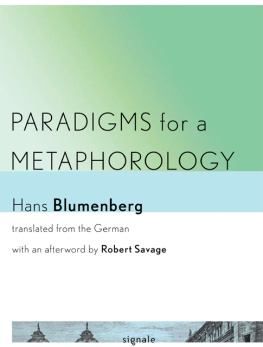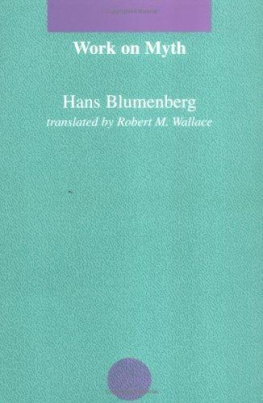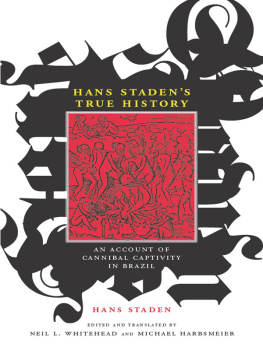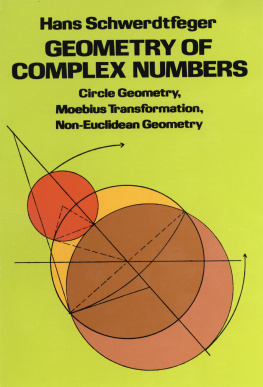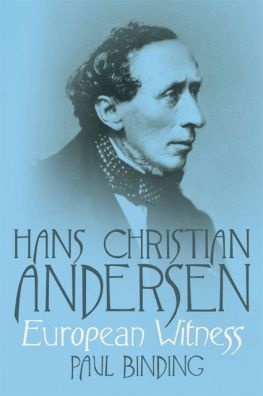Hans Blumenberg - St. Matthew Passion
Here you can read online Hans Blumenberg - St. Matthew Passion full text of the book (entire story) in english for free. Download pdf and epub, get meaning, cover and reviews about this ebook. year: 2021, publisher: CornellUP, genre: Religion. Description of the work, (preface) as well as reviews are available. Best literature library LitArk.com created for fans of good reading and offers a wide selection of genres:
Romance novel
Science fiction
Adventure
Detective
Science
History
Home and family
Prose
Art
Politics
Computer
Non-fiction
Religion
Business
Children
Humor
Choose a favorite category and find really read worthwhile books. Enjoy immersion in the world of imagination, feel the emotions of the characters or learn something new for yourself, make an fascinating discovery.

- Book:St. Matthew Passion
- Author:
- Publisher:CornellUP
- Genre:
- Year:2021
- Rating:4 / 5
- Favourites:Add to favourites
- Your mark:
- 80
- 1
- 2
- 3
- 4
- 5
St. Matthew Passion: summary, description and annotation
We offer to read an annotation, description, summary or preface (depends on what the author of the book "St. Matthew Passion" wrote himself). If you haven't found the necessary information about the book — write in the comments, we will try to find it.
St. Matthew Passion — read online for free the complete book (whole text) full work
Below is the text of the book, divided by pages. System saving the place of the last page read, allows you to conveniently read the book "St. Matthew Passion" online for free, without having to search again every time where you left off. Put a bookmark, and you can go to the page where you finished reading at any time.
Font size:
Interval:
Bookmark:
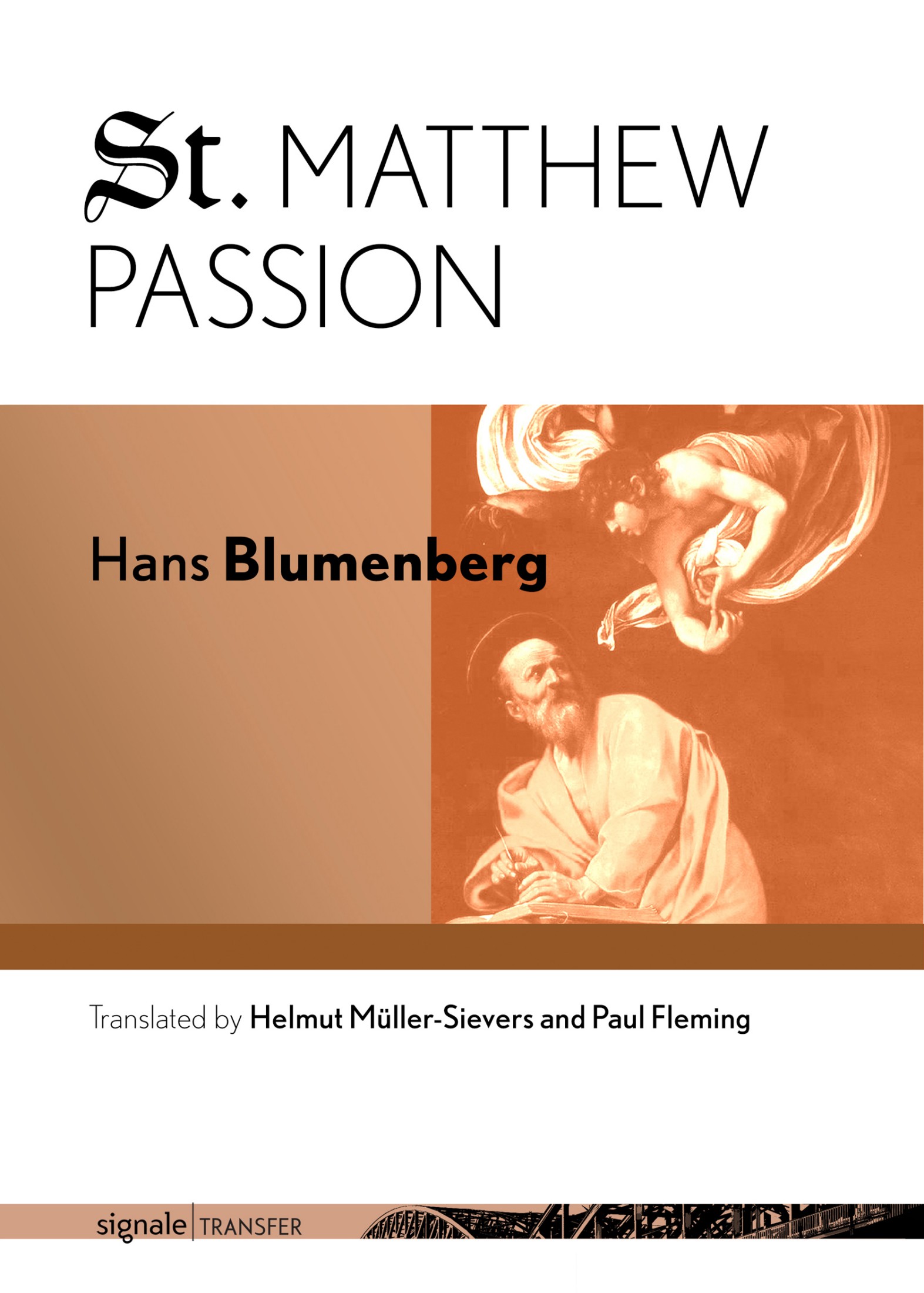
ST. MATTHEW PASSION
HANS BLUMENBERG
Translated by Helmut Mller-Sievers and Paul Fleming
A Signale Book
CORNELL UNIVERSITY PRESS AND CORNELL UNIVERSITY LIBRARY
ITHACA AND LONDON
There is, to begin with, no such thing as pacing off the horizon; it is a paradox, a metaphorical attempt to achieve the impossible. Whoever tries to approach the horizon in order to pace it off would experience a childlike disappointment: every such effort simply opens up a new, equally unapproachable field of vision. You can pace off the horizon only with your eyes, searching it in one of two possible directions.
The paradoxical desire to pace off a horizon derives from its optical ambiguity: it opens up the field it encloses through the proximity of what is clear and accessible to us, to our sense of orientation in directions and distances; but it also limits us to the narrowness of what is near, it withholds from us what at each of its points would be circumscribed by yet another horizon; the and-so-forth of these multiplications draws us into a distance both alluring and confusing, a distance named by a pathos conceptinfinity. One avoids this by defining the horizon of horizons as a world.
Only by relating the concept of the horizon to timethat is, by assuming a metaphorical proximity and distance in both directions, past and future, from the vantage point of the presentwas the full potential of the spatio-optical schema for capturing experienced and lived reality realized. Whoever dares or is challenged to pace off the horizon will have to circumvent everything that lies within the vicinity of his current position or of the position into which he wants to project himself as an interpreter. The horizon thus becomes the background against which everything that is foregrounded stands out and plays out.
All events and all figures, when they become real, have become real, or could become real, stand before their horizon. Being in the background is not a positive predicate, any more than standing in the foreground is a disqualification. Isolating the foreground of history as it really happened deprives us of essential insights, as does the fixation on the apparent precedence of the background, which in the process seems only to acquire the underground as a rival. Even the primacy of the horizon of expectation over memory is the temporary effect of a course correction: one-sidedness is the fate of all perception. Every presence depends on the guiding thread of shadings that calls upon what is withdrawn in the given (staying with the metaphor of the horizon) to play along: to preserve an openness toward absence because and insofar as it is never wholly absent.
On this conceptual floor plan we can think about the audience of the St. Matthew Passion: about those who had to be present to Bach so that he may not fail them, and about the listeners after the irrecoverable delay from whose horizon the images and parables, the sacred stories and the speeches, the proverbs and the chorales of Bachs congregation have disappeared without being replaced by anything comparable. Two hundred years of historical criticism have clarified exactly what could not have happened the way it is written; but they have failed to give rise to anything else that could lay claim to reality. As a consequence, the doubt whether this Jesus of Nazareth really existed became unavoidable. We may even ask whether the historical disparagement of this doubt, by now almost forgotten, did not favor agreement upon a minimal set of images and figuresfor example, on the philosophically reduced kerygma, such agreement would leave the late listener no chance to determine who is being sung about in the St. Matthew Passion, and with whom it seeks to console us.
The arrogance of theologians might have led some to a liberating truth; the majority who have come to the threshold of this experience through the musical renewal and the ubiquitous broadcasts and recordings of the Passion havefor fear of appearing naivemoved away from the work rather than gained a more sophisticated understanding. In this listening situation, the theoretical task at hand is neither pacing off the horizon nor the reoccupation of the horizon of Bachs implied congregation, but instead the constitution of still possible listeners as contemporaries who have been abandoned by their tradition and yet are still capable of its selective remembrance.
What they will or might want to remember, however, is neither here nor elsewhere a question of method or system; it is a question of their affinity, their choice, andI dare sayof their taste. The distribution and the density of all acceptable positions on the horizon that impart and heighten the Passions significance and to which experience, reflection, and contemplation might still refer, can be determined only by experimenting with what is represented and offered. It would be meaningless, therefore, to abandon the qualities of aesthetic attraction; Bachs St. Matthew Passionwhatever else it might be and doalso exerts the aesthetic attraction not to be indifferent to its content and, for the hours of its duration, to settle into its horizon. That would not be possible from a blank slate.
In the post-Christian era, a person listening to the St. Matthew Passion is probably less moved by the obsolete question concerning what is true in the story than by what may be true. If there was a God in this play of bloody seriousnesscan he have remained a God? What does it mean to call him such if he was an actor in this story, directed it, used it for his own reconciliation and for the salvation of others?
The evangelist Matthew did not transmit the word that conveys the pain inherent to any answer to such questions; it can, though, be found in the beloved and still popular beginning of the Gospel of Luke, which contains one of the defining images of Christian art, the annunziata: the angels reply to the Virgin, who, upon learning she will give birth, inquires: How can this be, since I do not know a man? (Luke 1:34). The angel concludes his communication with the great expression of theology: For with God nothing is impossible (Luke 1:37). These words are the key to all that follows, including the Passion, even though Matthew does not include them. He preferred the dream of Josephwho thought of secretly abandoning the pregnant woman because he was sure he was not the father of the childand thus made inquiries with the enlightening Angel of the Lord impossible. This version was never much liked during the centuries of faith: dreams may have their place elsewhere but not so close to the realest reality, the incarnation of Gods son; here, a veritable angel with a given name was needed, just as he would later be represented in the images. Matthew thus denies his readers and listeners the very words that seems to have been captured straight from the throne of God by the infallible ear of the nearest archangel, a direct transmission of divine self-consciousness.
Unspoken, unrepeated, present to every implied listener of Bach, these words also stand above the Passion, threatening everybody who desires to rebel like Jesus in Gethsemane: he, and we, should have been spared. It would sound quite different: with God nothing is impossible, not even this.
That the angels advice to the hesitating annunziata seems exasperating to us rather than helpful, dismissive rather than consoling, is already the result of historical trainingand of its philosophical systematization. That everything was possible for God becomesas the hard-won result of unifying the biblical storiesthe foundation for the expectation that in his promises and in his covenants anything could be expected from God.
Font size:
Interval:
Bookmark:
Similar books «St. Matthew Passion»
Look at similar books to St. Matthew Passion. We have selected literature similar in name and meaning in the hope of providing readers with more options to find new, interesting, not yet read works.
Discussion, reviews of the book St. Matthew Passion and just readers' own opinions. Leave your comments, write what you think about the work, its meaning or the main characters. Specify what exactly you liked and what you didn't like, and why you think so.

